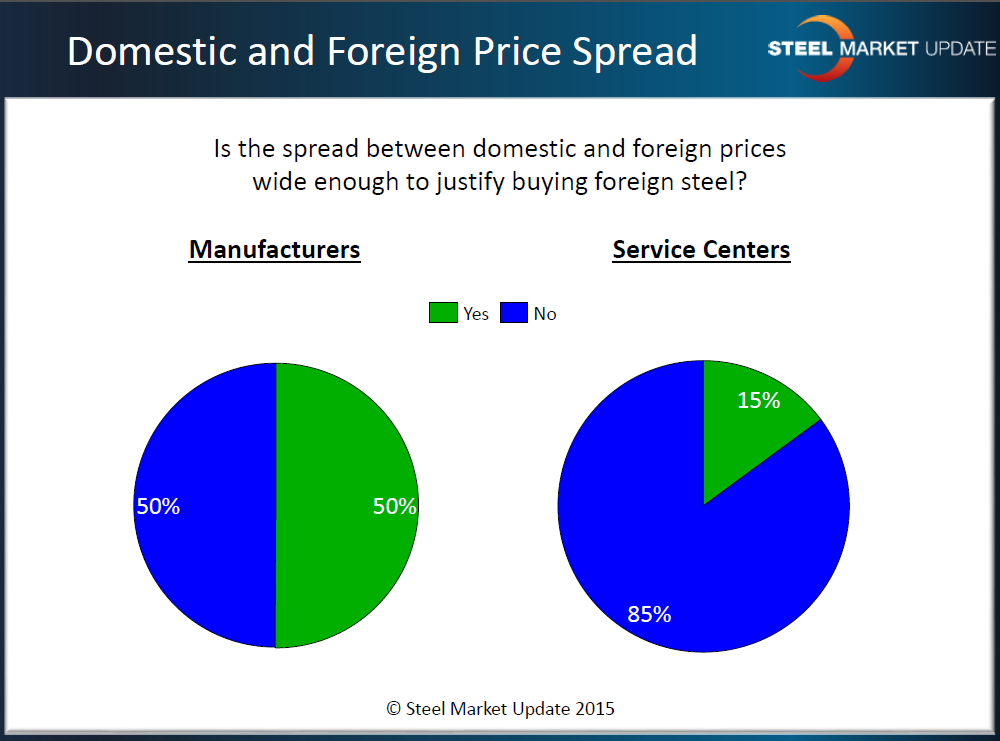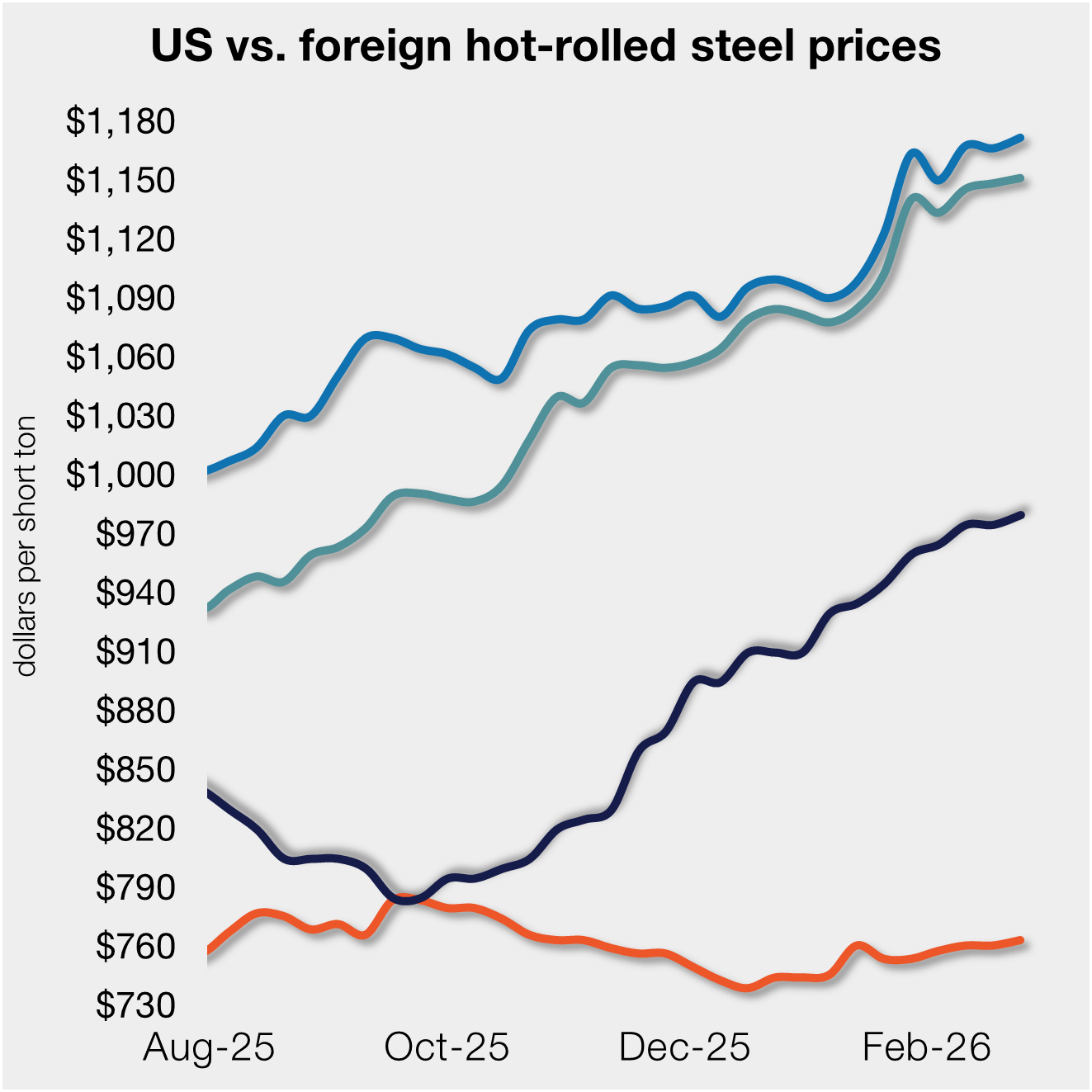Prices

May 10, 2015
Will Steel Price Increases Create Opportunities for Foreign Steel?
Written by John Packard
Will Domestic Price Increases Create Opportunities for Foreign Steel?
Over the past few months domestic steel prices have become competitive against foreign steel imports. With the price announcements SMU wondered if the increases would widen the spread, thus creating an opportunity for more foreign steel to come to the U.S. During last week’s flat rolled steel market survey we asked our respondents if the new mill pricing would create opportunities for imported steel?
Our survey results showed that 62 percent of the respondents reported that they did not believe the increases would create new opportunities for foreign steel.
It’s All About Price Spread
In every survey we produce we ask manufacturing companies and service centers (independent of one another) if the spread between domestic and foreign prices is wide enough to justify buying foreign steel. The results are show below and are quite telling as the manufacturing companies are split 50/50 while the service centers believe overwhelmingly that the spread is not wide enough to justify buying foreign steel.
In both cases, manufacturing or distributors, the belief that the spread between domestic and foreign pricing is not wide enough to justify buying steel is at levels not seen in a couple of years in the case of the service centers, and is trending at the lower levels of the range for manufacturing companies.
Are Order Rates for Foreign Being Affected?
The key question for the domestic steel industry, as they look out into late second and third quarter 2015, is will the amount of foreign steel being placed by either manufacturing companies or service centers be affected by tighter spreads?
Based on our survey results, 88 percent of the service centers responding reported that their company was not placing new orders. This compares to the 59 percent who responded similarly in the first week of January 2015. We have seen a steady climb away from foreign steel by service centers since that point in time.
Manufacturing companies, at least those who respond to our questionnaires, have been consistent buyers of foreign steel over the past few years. However, the 56 percent who reported that their company was placing new foreign orders is much lower than the 78 percent reported at the middle of April.
Are Inbound Foreign Orders Affecting Domestic Orders?
As we anticipate the flow of orders to the domestic steel mills we need to understand if the inbound foreign orders are affecting orders which would have otherwise gone to domestic steel mills. We asked both the manufacturing companies and the distributors if receipt of foreign imports would cause their company to reduce domestic steel orders.
Seventy-four percent of the manufacturing companies reported that foreign receipts would not cause their company to reduce foreign orders. In 4th Quarter 2014 (which impacts 1st Quarter domestic order books) we were hearing from 60-70 percent of the manufacturing companies that their foreign inbound orders were causing them to place fewer domestic orders. This bodes well for the 2nd Quarter order book for the domestic steel mills.
We are seeing similar results out of the service centers where 70 percent reported that foreign receipts would not cause them to reduce orders to the domestic steel mills. In 4th Quarter 2015 52-68 percent were reporting that receipts would affect their orders to the domestic mills. Once again, this bodes well for the domestic mills for 2nd and into 3rd Quarter bookings.








